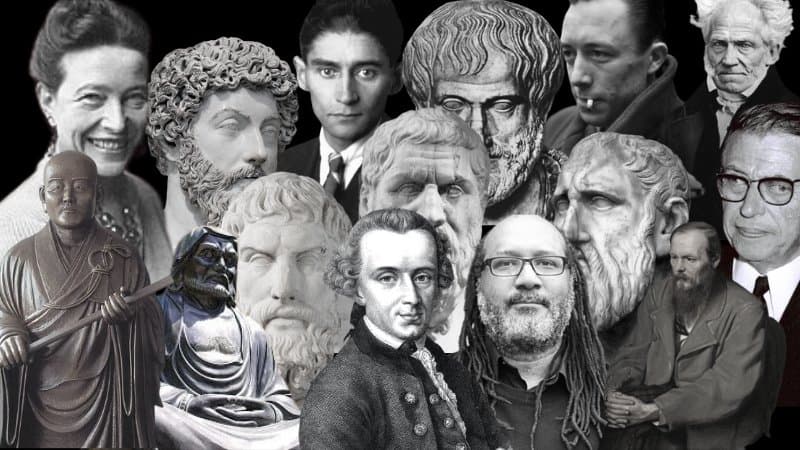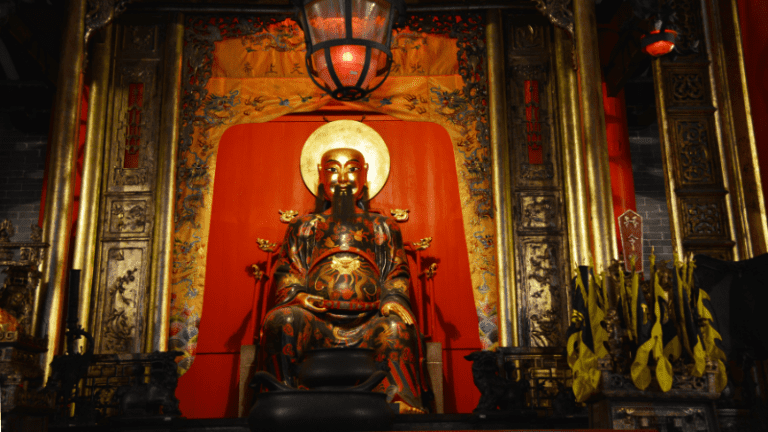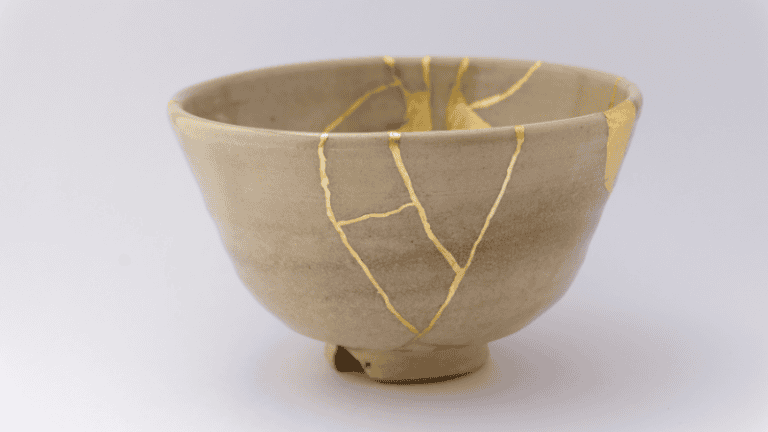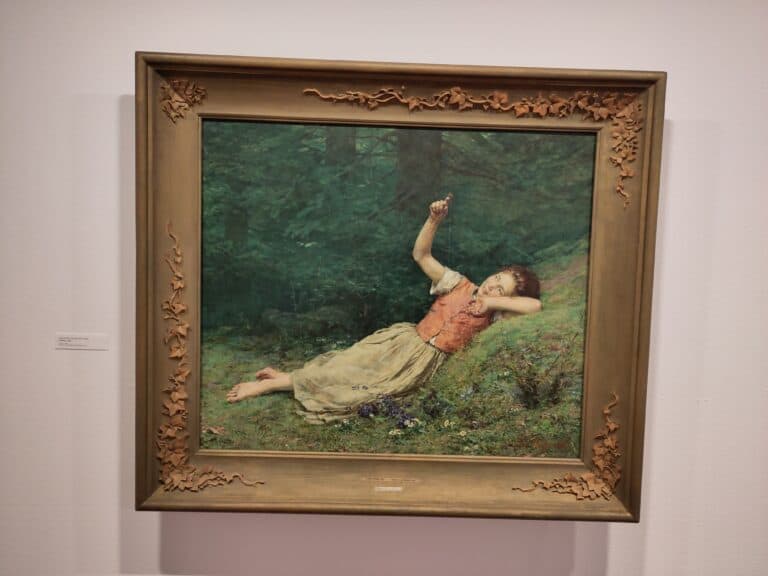Briefly Introduced: The Most Famous Philosophers
This article will help you learn in a simple way about some of the most famous philosophical schools and their most famous philosophers.
If philosophy is new to you and you don't know where to start, we have a special article here to help: The Best Philosophies for Beginners (Everything You Need to Know)
The article is rather intended for browsing, because it is very long. If you are very ambitious, you can still read it from beginning to end. Otherwise you can find the table of contents here:
Platonism
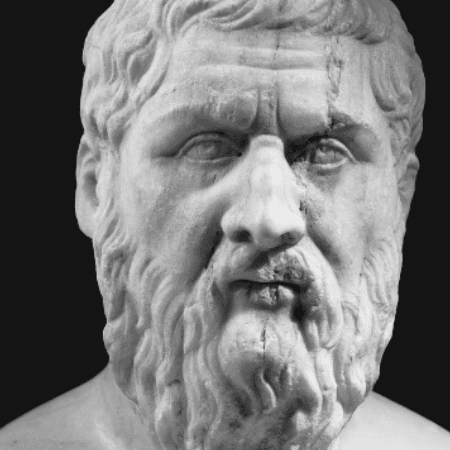
Plato. Lived from about 428 to about 348 BC, it is not possible to determine more precisely. He lived in what is now Greece and, like most philosophers of the time, was educated in general science. Like Socrates, he was also concerned with mathematics. He wrote several philosophical dialogues. If you are interested in Plato, here is one of our articles: "Death is not the worst thing that can happen to man."
Aristotelianism
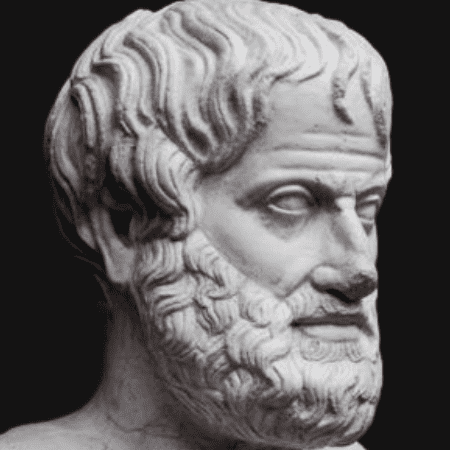
Aristotle lived from 384 BC to 322 BC in what is now Greece and was a philosopher. He was a polymath, like most philosophers of the time.
Aristotle is considered a great philosopher and scientist and is incredibly famous. He made great contributions to all areas of philosophy and science. He also invented formal logic and identified the different scientific disciplines and explored their relationships to each other.
Aristotle believed that in order to convince someone of an idea, one must adhere to three principles: ethos, pathos, and logos.
Stoicism
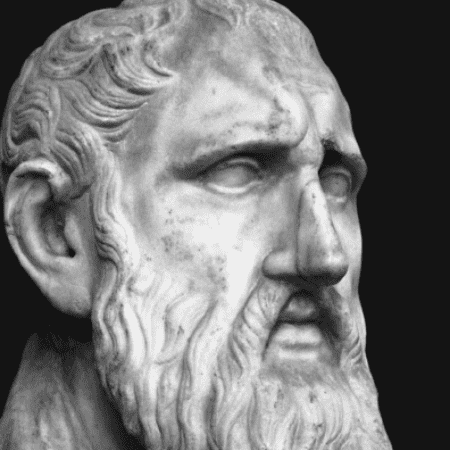
Zenon of Kitium (ca. 334-262 BC) was the founder of the Stoic school in Athens (ca. 300 BC). Excitingly, he is not the best known representative of the Stoics.
Zenon was a merchant until he read a book by Socrates' pupil Xenophon - the book is called "Memorabilia". The book contained conversations with Socrates, his philosophy and Xenophon's memories of his time as his pupil. Zenon was so interested in what he read that he gave up his job to study philosophy. He eventually became a teacher and his school influenced Roman philosophy when one of his students, Diogenes of Babylon, brought Stoicism to Rome in 155 BC.
If you also don't know much about Zenon, you can start to change that with this article: "Infinite is the time of the past and the future; the time of the present is limited."
Perseus (306-243 BC) was a student and friend of Zeno of Cition and thus also a follower of the Stoic school.
Aratus from Soli (ca. 315-c. 245 BC) was a student of Zeno and also devoted to the art of poetry. His tomb was only discovered in 2021 in what is now Turkey.
Athenodorus from Soli (lived around the year 275 BC) was a student of Zeno and brother of Aratus.
Aristo of Chios (lived from about 310 B.C. to about 240 B.C.) was a student of Krates. Although he is considered a Stoic, he also leaned heavily toward cynicism.
Apollophanes of Antioch (lived around the year 250 BC) was Stoic philosopher and friend of Aristo of Chios.
Dionysius the Apostate (lived from around 325 to 250 BC) and was a student of Zeno, the founder of Stoicism. He received the nickname "The Apostate" when he turned away from the school of the Stoics. The reason for this was severe pain from which he began to suffer.
Dionysus, by the way, was also the name of the Greek god of wine, illusion, disguise, ecstasy and fertility in Greek mythology. He is described as both gentle and terrible.
Sphaerus pupil of Zeno (lived from 285 BC to 210 BC) left Sparta and also Greece. He made Alexandria his new home and continued to pursue stoicism there. He lived there at the court of the Pharaoh. The reason for his move is not clear, but it is believed that he accompanied the exiled Spartan king Cleomenes III. According to traditions, his views were highly respected among the Stoics.
Herillus of Carthage (lived around the year 250 BC) was a student of Zeno of Cition, who considered knowledge to be the highest good. Unfortunately, not much is known about Herillus, since his works were not particularly well received and he had not opened his own school.
Cleanthes (from Assos) (lived from 331 BC to 232 BC) was the second leader of the Stoic school.
Eratosthenes (of Cyrene) lived around the year 225 BC and was a student of Aristo of Chios. He also held the office of chief librarian in Alexandria.
Hermagoras of Amphipolis (lived around the year 225 BC) was Stoic philosopher and follower of Persaeus of Citium.
Chrysippus (from Soli) (lived ca. from 280 BC to 206 BC) was third leader of the Stoic school. During his life he wrote 705 books (that we know of). He was a native of Sicily, but moved to Athens as a young man. He apparently had excellent knowledge of logic, theory of knowledge, ethics, and physics.
Dioscorides (lived around the year 225 BC) was a Stoic and a student of Chrysippus. He was the father of Zeno of Tarsus, who was to become the fourth leader of the Stoic school.
Aristocreon (lived around the year 210 BC) was nephew of Chrysippus and belonged to the Stoics.
Zeno of Tarsus lived around the year 200 BC and became the fourth leader of the Stoic school.
Eudromus (unfortunately it is not handed down when he lived) was a Stoic and wrote the book called "Elements of Ethics".
Crates from Mallus lived around the year 175 BC and was not only a Stoic and a grammarian, but also the director of the library in Pergamon.
Diogenes of Babylon lived from about 230 BC to 150 BC and was the fifth leader of the Stoic school.
Zenodot (lived around the year 150 BC) was a student of Diogenes of Tite.
Apollodorus of Seleucia (lived around the year 150 BC) was a student of Diogenes of Babylon.
Basilides (lived around the year 150 BC) was a Stoic who stands out especially because he denied the existence of incorporeal beings.
Antipater of Tarsus lived from about 200 B.C. to 129 B.C.). He was the sixth leader of the Stoic school.
Apollodorus of Athens (around 150 BC) was a historian. He was also a student of Diogenes and Antipater of Tarsus and therefore belonged to the Stoics.
Archedemus of Tarsus (lived around the year 140 BC) founded a Stoic school in Babylon.
Panaetius of Rhodes (185-109 BC) was the seventh and last undisputed leader of the Stoic school. After him, the Stoic school lost importance quite quickly until it regained much attention at the end of the 19th century, when writings of the ancient Stoics were gradually discovered.
Boethus from Sidon (lived around the year 150 BC) was a student of Diogenes.
Polemon of Athens (lived around the year 150 BC) was a respected geographer and follower of Panaetius.
Gaius Blossius (lived around the year 133 BC) was a disciple of Antipater of Tarsus, insurgent in the revolt of Aristonikos
Marcus Vigellius (lived around the year 125 BC) was a Stoic who lived with Panaetius.
Heraclides of Tarsus (lived around the year 125 BC) was a disciple of Antipater of Tarsus.
Dardanus (c. 160-c. 90 B.C.) is considered one of the leading figures of the Stoic school in ancient Athens.
Mnesarchus (c. 160 B.C. to 90 B.C.) was one of the leading figures of the Stoic school in Athens.
Publius Rutilius Rufus (lived from 158 B.C. to 75 B.C.) was not only a student of Panaetius and therefore a Stoic but he was also a statesman, orator and historian.
Stilo (ca. 154 to 74 BC) was a grammarian and scholar. He is counted among the Stoa.
Dionysius of Cyrene (lived about the year 125 BC) was a leading figure of the Stoic school in Athens.
Quintus Lucilius Balbus (lived around the year 125 BC) and was a Stoic philosopher and disciple of Panaetius.
Hekato from Rhodes (lived around the year 100 BC) Pupil of Panaetius, wrote on ethics.
Diotimus the Stoic (lived around the year 100 BC) Stoic who slandered Epicurus.
Posidonius (of Apamea) (ca. 135-51 B.C.) A philosopher, astronomer and geographer.
Crinis (fl., uncertain) Stoic who wrote about logic.
Proclus from Mallus (fl. undefined) Stoic philosopher and writer
Diodotus the Stoic (c. 130-59 B.C.) Stoic teacher of Cicero who lived in Cicero's house.
Geminus of Rhodes (ca. 110-c. 40 BC) Astronomer and mathematician
Athenodoros Cordylion (ca. 130-60 B.C.) Librarian in Pergamon, lived with Cato
Apollonius of Tyre (ca. 50 BC) Stoic philosopher who wrote a biography of Zeno
Cato the Younger (95-46 BC) Statesman who opposed Julius Caesar.
Antipater of Tyre (ca. 100-45 BC) Friend of Cato. Wrote about practical ethics
Porcia Catonis (ca. 70-43 B.C.) Stoic, daughter of Cato the Younger
Apollonides (lived around the year 46 BC) Stoic philosopher whom Cato consulted before committing suicide.
Jason from Nysa (lived around the year 50 BC) Grandson of Posidonius
Athenodoros Cananites (ca. 74 BC - 7 AD) Pupil of Posidonius. Teacher of Augustus
Stertinius (lived around the year 50 BC) philosopher satirized by the poet Horace.
Persifliert means something like, "mocked in a witty way by exaggerated imitation" and is mostly used in the educational language context.
Quintus Sextius (lived around the year 40 B.C.) Founded a school that taught Stoicism mixed with Pythagoreanism.
Arius Didymus of Alexandria (lived around the year 10 BC) collected excerpts from earlier Stoic writers.
Theon of Alexandria (lived around the year 10 AD) was a Stoic philosopher.
Attalus (lived around the year 25 AD) was Stoic philosopher who was frequently visited by Seneca.
Papirius Fabianus (lived around the year 30 AD) was teacher of Seneca, rhetorician and philosopher.
Julius Canus (lived around 30 AD) was a stoic philosopher who was sentenced to death by the 3rd Roman Emperor, Caligula.
Lucius Annaeus Seneca (ca. 4 BC to 65 AD) is one of the most famous Stoa. He was a statesman, philosopher and dramatist. Many of his works have been handed down, which contributed significantly to his fame.
Thrasea paetus (c. 10 AD to 66 AD) was a Roman senator and stoic.
Lucius Annaeus Cornutus (c. 20 A.D. 70 A.D.) wrote a compendium of Greek theology in addition to his work as a Stoic teacher.
Chaeremon of Alexandria (lived around the year 50 AD) was a Stoic philosopher and grammarian. He also worked as a librarian in Alexandria.
Paconius Agrippinus (lived around the year 60 AD) was a Stoic philosopher who was praised by Epictetus.
Heliodorus lived around the year 60 AD and was a Stoic philosopher. He is said to have been an informant during the reign of Nero.
Publius Egnatius Celer (lived around the year 60 AD) Stoic philosopher. Informant during the reign of Nero. His most questionable success was to testify falsely in court against his old friend and teacher Consular Quintus Marcius Barea Soranus as well as his daughter, whereupon they were sentenced to death. Celer himself was later found guilty of false testimony and his properties were confiscated and he was exiled.
Persius (34-62 AD) Stoic philosopher, poet and satirist.
Helvidius Priscus (fl. 65 A.D.) Stoic philosopher and statesman
Arulenus Rusticus (ca. 30-93 AD) was a statesman. Besides his political activities, his friendship is remarkable, which he cultivated with Thrasea and whose pupil he also was.
Musonius Rufus (ca. 25 to 90 AD) was a Stoic philosopher and teacher of Epictetus. Some of his lectures have been preserved over the centuries.
Fannia (ca. 100 AD) was another Stoic and daughter of Stoa Thrasea. She is particularly famous in regard to her position in the opposition of Nero. In written traditions it is clear that she must have been extremely sympathetic, kind, decent and amiable.
Euphrates the Stoic (ca. 35-118 AD) was a philosopher, orator and disciple of Musonius Rufus.
Kleomedes was a philosopher and astronomer who was involved in the early calculations of the circumference of the Earth. It is uncertain when he lived, but mostly rough period of the 1st or 2nd century AD is mentioned and it is considered certain that he lived later than Posidonius.
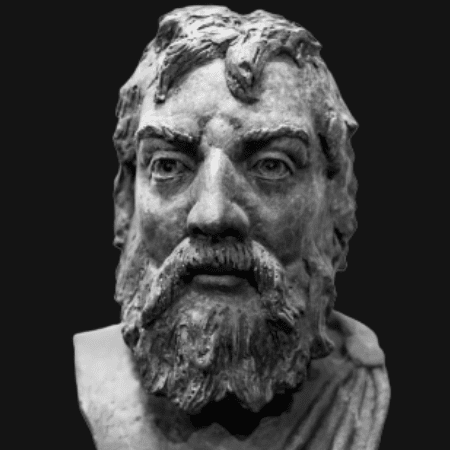
Epictetus (of Hierapolis) (c. 55-c. 135 AD) was a student of Musonius Rufus. Both his Discourses and the Enchiridion are fortunately extant and popular Stoic works. You'll find quite a few articles on our blog about his citations. Here is an example: Epictetus on True Wealth and Frugality
Hierocles (lived around the year 150 AD) was the Stoic philosopher who wrote the "Elements of Ethics".
Flavius Arrianus (lived ca. from 90 AD to 175 AD) was a historian and student of Epictetus and thus belonged to the Stoic school.
Basilides of Scythopolis (lived around 150 AD) was teacher of the later emperor Marcus Aurelius.
Apollonius of Chalcedon (lived around the year 150 AD) was another Stoic teacher of Marcus Aurelius and also of Lucius Verus.
Claudius Maximus (lived around the year 150 AD) was a Stoic philosopher and friend of Marcus Aurelius.
Cinna Catulus (lived around the year 150 AD) was one of the Stoic teachers of Marcus Aurelius.
Junius Rusticus (c. 100 AD to 170 AD) was a philosopher and consul, as well as an advisor to Marcus Aurelius.
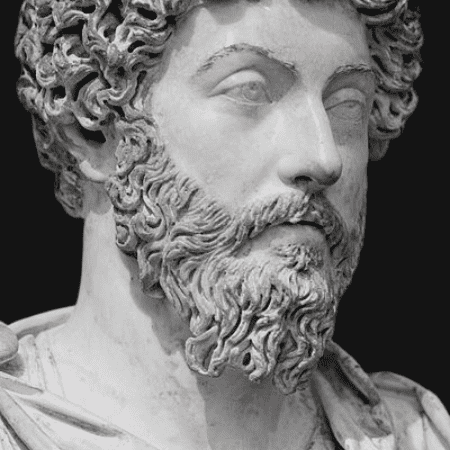
Marcus Aurelius or in German also Marc Aurelius (121-180 A.D.) Roman emperor from 161-180 A.D. His philosophical notebook, the Meditations, is one of the most important works of Stoic philosophy. If you want to read more about Aurelius and his most important quotes of all time, check out this article on Aurelius' most relevant quotes for today's life at.
Medius (lived around the year 250 A.D.) he debated with Longinus on the Stoic theory of the eight parts of the soul and is generally considered to be the last of the younger Stoics - which, roughly speaking, are the Stoics who lived after Chrsiti's birth.
Confucianism
Confucianism is an ethical and philosophical system that emphasizes the group rather than the individual. It was founded by the Chinese thinker Confucius in the sixth century BC and later became the official ideology of China.
Confucianism has greatly influenced Chinese culture and way of life. It is also one of the oldest philosophical systems around and has greatly influenced other East Asian philosophies such as Korean Confucianism and Japanese Confucianism.
If you want to learn more about this system of thought, check out our article on the best books on Confucianism.
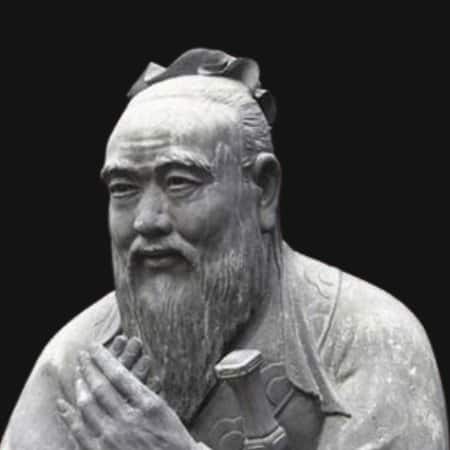
Confucius (551-479 BC) was a Chinese thinker and philosopher from the state of Lu. He was probably the most influential Chinese philosopher of all time. You have probably heard of him before and will hear his name again and again throughout your life.
Menciuswho held that human nature is good and benevolent. He lived during the Warring States period (372-289 BC), shortly after Confucius. He summarized one of the most important works of Confucionism: the Mencius
Xunzi (298-238 BC), who believed that human nature is evil and in need of strict controls. He thus broke away from Mencius' view and instead held that morality is extrinsic.
Wang Fuzhi, (1619-1692) was a historian and follower of Confucianism, but felt that the Neo-Confucianism embraced at this time misinterpreted the original teachings.
Wáng Mǎng, lived from 45 AD to 23 AD and was emperor of China for 24 years. He tried to create a harmonious society, but despite his popularity, it sank into chaos because he could not solve various foreign and domestic problems. He not only dressed like a humble follower of Confucianism, but also studied its writings.
Yan Hui was the favorite disciple of Confucius and one of the most revered figures of Confucianism. For example, in "Conversations of Confucius" (English "Analects of Confucius") can be found folgendest praise:
"What a worthy man was Yan Hui," the master said. He lived in a narrow alley and subsisted on rice and water - other people could not have endured such hardships, and yet that never dimmed Hui's joy. What a worthy man Hui was!"
(Analects 6.11)
Taoism
Taoism is a philosophy widely practiced in China by millions. It is now gaining popularity in other parts of the world as well. You will find in the following article everything you need to know about Daoism: the history, the beliefs and the practices.
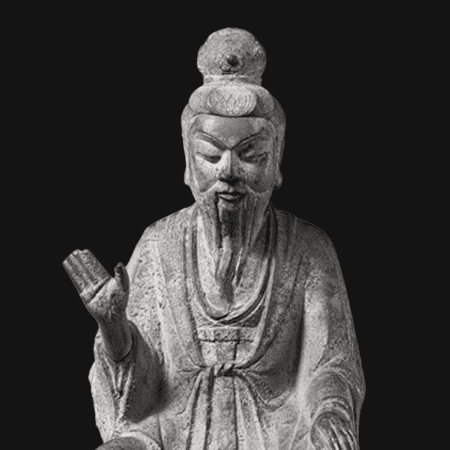
Laozi (Lao Tzŭ or Lao Tzu)who is traditionally considered the founder of Taoism. His name means "old master" and very little is known about him. It is not even certain that he ever lived. He was the illusionary founder of Taoism and author of the Tao te Ching (Book of the Way). You can read these articles if you want to know more about the founder of Taoism:
- Lao Tzu: Why You Shouldn’t Care What Others Think
- "A journey of a thousand miles..." - Lao Tzu's tip for your life's journey
- "When I let go..." - Lao Tzu about one's own potential
Ge Hong lived from 283 A.D. to about 343/364. Never heard of him? That is not unusual in the western part of the world. But in China and much of Asia, his name is very well known. And why? Because he was an important alchemist, physician and writer during the Eastern Han Dynasty (25-220 AD). He turned to Taoism in search of a path to immortality.
Lie Yukou is said to have lived around the year 400 BC and was supposedly the author of the Daoist book Liezi, which contains many Daoist stories and anecdotes. However, there is speculation that this is a fictional character created by Zhuangzi to represent Daoist principles.
Zhang Daoling lived from about 34 to 156 AD and was the man who founded the Heavenly Masters sect of Taoism in 142 AD. Extremely little can be proven about him, as his influence has been embellished in records. Celestial Master Taoism is a form of Taoism with strict religious rituals that exists to this day.
Zhang Jue, the leader of the Yellow Turban Rebellion (184-205 AD), a Taoist uprising against the Han dynasty, as they considered the Han decadent. In fact, a peaceful period followed the uprisings. The Yellow Turbans are considered the forerunners of the Celestial Master Taoists.
Wang Zhe, a Taoist who lived during the Tang Dynasty (618-905 AD) and is considered the founder of Quanzhen Taoism. By the way, Wang Zhe was also a skilled swordsman and archer.
Sun Bu'er (known as Sun Fuchun before turning to Daoism) lived from 1119 A.D. to 1182 A.D. She began to study the teachings of Dao intensively later in life and was considered extremely wise.
According to stories, she was very pretty, which is why she burned her face with hot oil, so that she could go on a 1000-mile journey of enlightenment without any great danger. According to legend, she was successful and ascended to heaven.
Yang Xiong was a philosopher, poet and politician of the Han Dynasty who wrote about Taoism, Confucianism, Yin and Yang and cosmology.
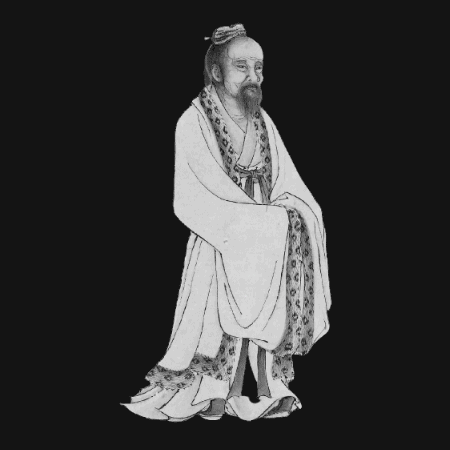
Zhuangzi (Chuang Tzŭ) lived in the 4th century BC and was a mystic and relativist skeptic who wrote the Zhuangzi, one of the key texts of Taoism. To this day, his book has sold millions of copies and has been translated into many languages. If you want to learn more about this famous philosopher, you can read this article about his Views on happiness read
Zhang Sanfeng (lived around the year 1270 AD) and was a legendary Taoist hermit who is said to have invented Taijiquan (Tai Chi). According to several legends, he lived to a fantastic 211 years old and spent his twilight years on Mount Wudang, which is one of the four sacred mountains of Daoism.
The four sacred mountains of Daoism are:
Wǔdāng Shān
Lónghŭ Shān
Qíyún Shān
Qīngchéng Shān
Chinese School of Naturalists and Naturalism
This school was founded by Zou Yan (305-240 BC), who lived during the time of the Warring States. He developed the concept of the Five Elements (Earth, Fire, Water, Metal and Wood), which was to strongly influence Chinese thinking in the following centuries. For this purpose, Zou Yan combined the theories of Yin-Yang and the Five Elements.
Buddhism
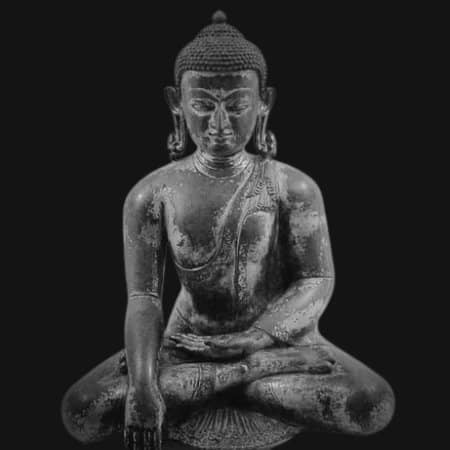
Siddhārtha Gautama was the founder of Buddhism, later known as "Buddha", was born in the 5th century BC in what is now Nepal. The Buddha's family was wealthy, but he was moved by the suffering he saw in the world.
The name of the historical figure known as Buddha (whose life is known mainly through stories) was Gautama, and his first name was Siddhartha. He left his position and wealth to become enlightened and began teaching others about Buddhism in India in the 6th-5th centuries BC.
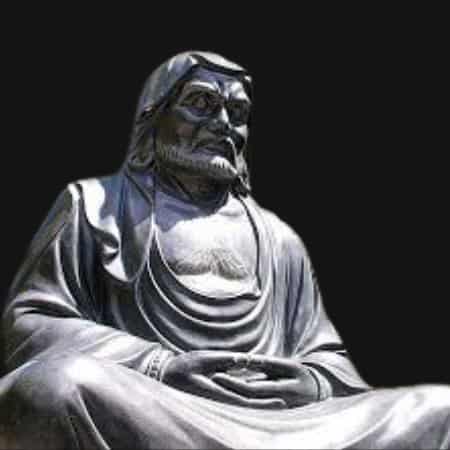
Bodhidharma lived in the 5th or 6th century AD and was a semi-legendary Buddhist monk. He is considered to be the bringer of Buddhism to China. According to Chinese legend, he also started the physical training of the monks of Shaolin Monastery, which led to the development of Shaolin Kungfu. He is known as Dámó in China and Daruma in Japan. His name in Sanskrit means "Dharma of Awakening (Bodhi)." Founder of Chan Buddhism
Legend has it that Bodhidharma remained in deep meditation for nine years, staring at a blank wall with his eyes open. Only once did he close his eyes and was so angry with himself for breaking his stamina that he cut off his own eyelids. When they fell to the ground, green tea leaves sprouted where they had landed. For this reason, many Buddhist monks drink green tea to stay awake.
Ikkyū (1374-1481) was a Zen Buddhist monk and poet who is especially highly regarded in Japan. After all, he was also Japanese. By the way, he is also considered one of the creators of the Japanese tea ceremony, which makes his fame even more understandable.
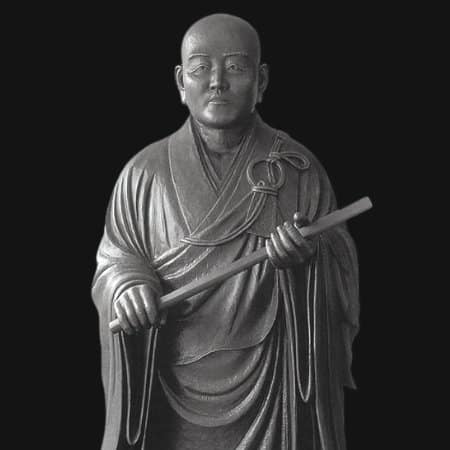
Dōgen Zenji (1200-1253), founder of the Sōtō school of Zen, based on the Caodong school. How did the school come to be founded? Dōgen was a monk who traveled to China to learn about Buddhism because he found that the Tendai school in Kyoto, Japan, was not teaching the right things.
He found a better teacher in China and studied with him for 5 years. After returning to Japan, he began to promote sitting meditation (zazen, which is very popular today) through his writings. Some of his famous works are the Shōbōgenzō (a collection of 95 essays), Eihei Kōroku (a collection of his lectures), and Eihei Shingi (the first Zen monastic codex written in Japan).
Jizang (lived from 549 to 623 AD) was a Persian-Chinese Buddhist monk and scholar. He is often considered the founder of the East Asian Mādhyamaka and is also known as Jiaxiang or Master Jiaxiang because of his fame at the Jiaxiang Temple.
Xuanzang was a Chinese Buddhist monk. Due to his disregard for the ban on leaving the country, the scholar became famous for his travels to India in 629-645 AD and translations of texts from Sanskrit. On his return, surprisingly, he was not punished, but welcomed by the emperor and encouraged to document his journey. Thus he made epoch-making contributions to Chinese Buddhism.
Through his efforts to bring over 657 Indian texts to China, and his translations of some of these texts, he is still highly regarded today.
Huiyuan (334-416 AD) was a Chinese Buddhist scholar who founded the Donglin Temple on Mount Lushan in Jiangxi Province and wrote the text "Why Monks Do Not Bow to Kings" in 404 AD.
He began studying the Zhuangzi and Laozi's teachings as well as those of Confucius at a young age. However, at the age of 21, he was converted in Hebei Province by the Buddhist Dao An, who was a Chinese disciple of a Kuchan missionary.
Kuchan was an ancient Buddhist kingdom located on a branch of the Silk Road that ran along the northern edge of what is now the Taklamakan Desert.
Zen
Huineng lived from 638 to 713 AD and was the 6th Buddhist patriarch of the Chan (Zen) school in China, founded the concept of "no mind".
Linji Yixuan (Lin-chi) died in 866 A.D. (his year of birth is not known) was the founder of the Linji school of Chan (Zen) Buddhism in China, which descended from the Rinzai school in Japan.
Zhaozhou was a famous Chan (Zen) master in the 8th century, known for his wisdom. He is mainly known for his subtle teaching methods and the use of gongans.
Gongangs (or also kōan called) are stories, dialogues, questions, or statements used in Zen to evoke the "great doubt" and to practice or test a student's progress in Zen.
Ikkyū (1374-1481) was a Zen Buddhist monk and poet who is especially highly regarded in Japan. After all, he was also Japanese. By the way, he is also considered one of the creators of the Japanese tea ceremony, which makes his fame even more understandable.
Sengzhao lived from 384 to 417 AD and was a Chinese Buddhist. Before becoming a Buddhist monk, he was interested in the Taoist teachings of Laozi and Zhuangi.
Yi Xing lived from 618-907 AD in the Tang Dynasty and was probably a busy Chinese astronomer, mathematician, inventor, mechanical engineer, philosopher - and not to forget: Buddhist monk.
Zhi Dun lived around the year 350 AD and was a Chinese Buddhist monk and philosopher. He was also a Chinese author, scholar and confidant of Chinese government officials. He also claimed that all who follow Buddhism would enter Nirvana after your death.
Existentialism
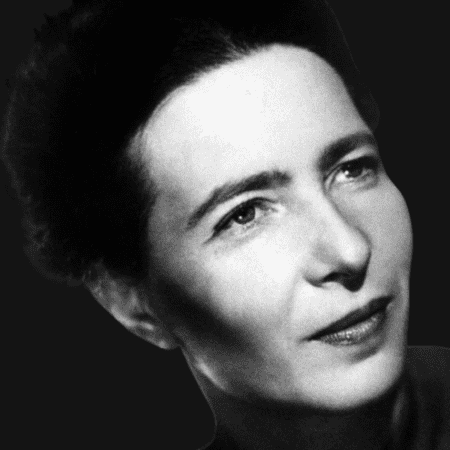
Simone de Beauvoir (January 9, 1908 - April 14, 1986 France) was a philosopher, anthropologist and founder of the literary-political journal Les Temps modernes (together with Camus and Sartre). She is further considered a precursor of second-wave feminism.
Example article: Simone de Beauvoir's Feminist Existentialism
Fyodor Dostoyevsky, born November 11, 1821, died February 9, 1881 was a Russian novelist and is considered the founder of existentialism.
Example article: Dostoevsky about the carriage (and fear of the new)
William A. Earle (1919 - October 16, 1988, USA), was not only a philosopher, but is also associated with phenomenology. He was a co-founder of the Society for Phenomenology and Existential Philosophy with Wild and James M. Edie.

Lewis Gordon was born in the USA in 1962 and is also associated with Africana philosophy, i.e. existentialism of dark skinned people and phenomenology.
His works include "Existentia Africana: Understanding Africana Existential Thought", "Geopolitics and Decolonization: Perspectives from the Global South" and his latest book "Fear of Black Consciousness".
Martin Heidegger (September 26, 1889 - May 26, 1976), was a German philosopher. He is also associated with phenomenology and hermeneutics, and was a collaborator of Hannah Arendt (despite her remarkable work, we will not discuss her in detail because she did not want to be called a philosopher - she considered herself a historian). Heidegger himself, by the way, rejected the label "existentialist."
William James (January 11, 1842 - August 26, 1910 USA) Philosopher, psychologist Fundamental figure of pragmatism. Broadly attributed to existentialism, but some argue that he is not entirely attributable to it, but rather to individualism.
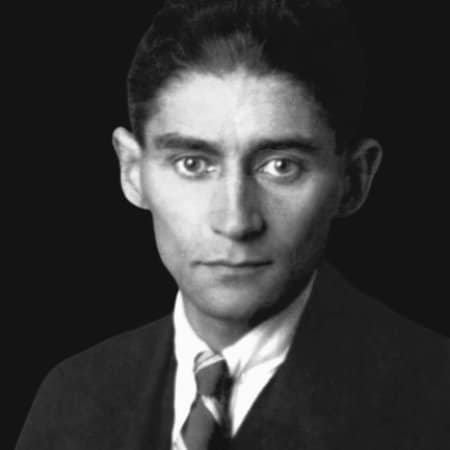
Franz Kafka July 3, 1883 - June 3, 1924 Austrian-Hungarian novelist one of the founders of existentialism. You may know books like "The Metamorphosis" (which was published in 1915, by the way) from school. He died at the age of 40 from tuberculosis, which was unfortunately incurable at the time.
Example article: Kafka: Are We Lost Because We Are Free? (The Meaning Behind His Famous Quote)
Søren Kierkegaard (May 5, 1813 - November 11, 1855, Denmark) was a theologian, philosopher, writer, and is often cited as one of the founding figures of existentialism. He was thus a Christian existentialist.
Example article: Søren Kierkegaard: Why You Must Be Yourself
Friedrich Nietzsche, born October 15, 1844, died August 25, 1900, was a German philosopher and one of the founding figures of existentialism. However, he is also associated with nihilism.
Example article: Nietzsche on the power to build your own heaven
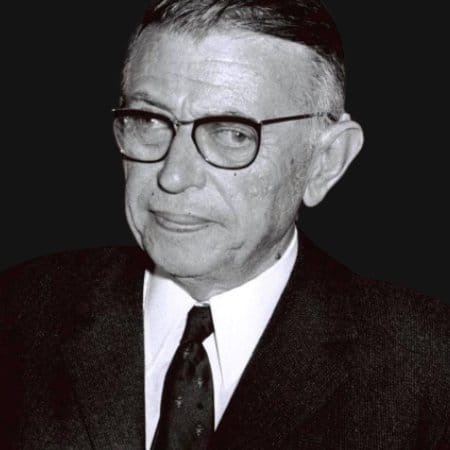
Jean-Paul Sartre (June 21, 1905 - April 15, 1980, France) was a philosopher, novelist, and activist. He is also associated with Marxism and, along with Simone de Beauvoir and Albert Camus, was a co-founder of the journal Les Temps modernes.
Example article: Sartre on the Ignorance of Living (and what you can learn from it)
Richard Wright (September 4, 1908 - November 28, 1960, USA) was both an author and a pioneer of black existentialism. He is also seen as a chronicler of the black experience in the American South. At times was mentor to James Baldwin, but also widely influenced Fanon and other Négritude writers. He maintained a close friendship with Sartre and De Beauvoir. His works had a great influence on European and African literary existentialism.
Albert Camus who lived from 1913 to 1960 is known, at least to us in Germany, as a philosopher. Especially his early works largely overlap with the views of existentialism. His work "The Stranger" was titled by Jean-Paul Sartre as the most important work of existentialism. Camus believed that although man's existence was absurd, knowing of his inescapable fatality, man nevertheless constantly strives forward. Because of this view, he is also counted as an absurdist, as you can read here.
Example article: To live is to act - Albert Camus
Pre-existentialism
Socrates lived from 469 to 399 B.C. And was a Greek philosopher. He is considered the founder of Western philosophy. You can find many articles about him and his most famous quotes on our blog. One example is this one: Knowing that you know nothing - Socrates explains
Henry David Thoreau, born July 12, 1817, died May 6, 1862, USA) was a writer, poet, and the founder of Transcendentalism.
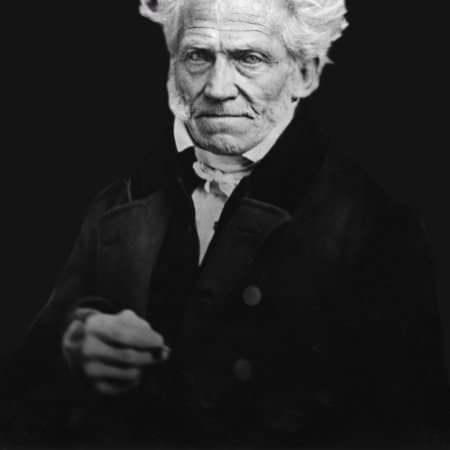
Arthur Schopenhauer (February 22, 1788 - September 21, 1860) is considered one of the greatest German philosophers and is attributed to the so-called Post-Kantian philosophy and German Idealism. Here you can find an article about his famous quote: "Almost all of our worries spring from our relationships with other people."
Cynicism
Being cynical is a term with negative connotations today, but the Cynics were a school of Greek philosophers who believed in living life according to nature.
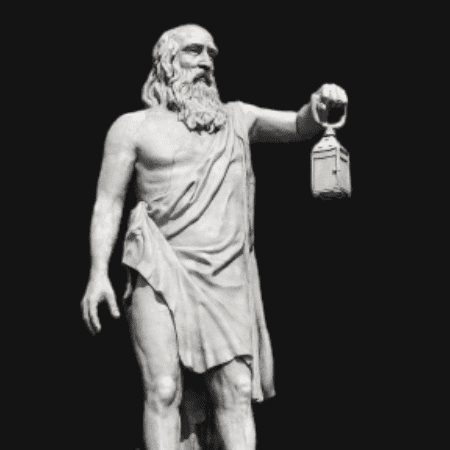
Probably her most famous figure was Diogenes of Sinope (c. 412-323 B.C.), who shaped the history of Cynicism (old spelling) like no other figure.
He was a Greek philosopher known primarily for his honesty and straightforwardness. He rejected the concept of manners as lies and instead advocated absolute honesty at all times. His famous acts include sleeping in the street in a barrel or tub, urinating and masturbating in public, and telling Alexander the Great to get out of the sunlight when the king did him a favor.
Epicureanism
As the name suggests, Epicureanism is a philisophical system founded by Epicurus.
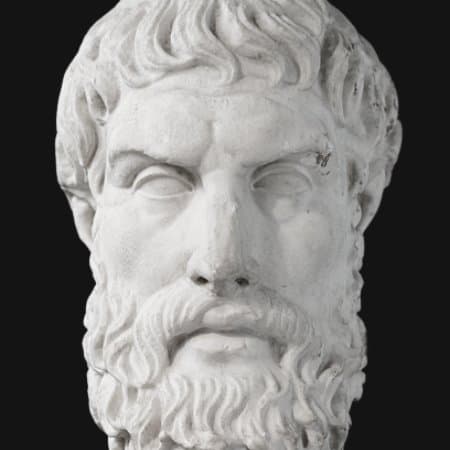
Epicurus was born on Samos around 341 BC and died in Athens in 270/271 BC. He is known for his advocacy of a simple life and his emphasis on ataraxia, "freedom from disturbance," and aponia, "absence of pain," as the main goals of life. The school was originally called "The Garden" because Epicurus and his followers (known as "the philosophers") actually lived in a communal garden.
Essentialism
Teaching basic skills is the main goal of the educational philosophy of essentialism. This philosophy believes that it is important to train the mind. Essentialist educators focus on teaching a series of difficult subjects. Students are moved to the next level or grade when they understand these subjects well. These subjects include reading, writing, math, science, history, foreign languages, and technology. Tools used include lecture, memorization, review, practice, and assessment.
William C. Bagley (1874-1946) was a very influential person when it came to the idea of essentialism. He held that education should not change society, but preserve it. At a conference of the American Association of School Administrators in 1938, Bagley said that schools and educators must be careful about what they teach and that it conforms to the core curriculum.
Hedonism
The word "hedonism" comes from the ancient Greek word for "pleasure". Hedonism is a theory that states that people are motivated only by pleasure and pain. There are two types of hedonism: psychological and ethical. Psychological hedonism states that we are motivated only by pleasure or pain. Ethical hedonism says that only pleasure has value or meaning, and only pain or displeasure has unvalue or the opposite of value.
Adherents of hedonism can be found throughout history. Thus, we have already covered some elsewhere in this article:
Among them: Plato, Aristotle, Epicurus, Thomas Aquinas and Friedrich Nietzsche.
Humanism
The Humanism is a philosophy that focuses on man and his well-being. It believes in the freedom, autonomy and progress of man. People who believe in humanism believe that people should be responsible for treating everyone fairly and that we should try to make the world a good place for everyone.
Epictetus, Epicurus, Shakespeare, Immanuel Kant and Voltaire are among the most famous philosophers who can be attributed to humanism.
As you can see, some philosophers can be found in more than one place. This is partly because some philosophers changed their school, but also because there is not always a clear demarcation between the different philosophical schools.
Idealism
You've probably heard the term idealism before, but few people know what it really means. Idealism is a philosophical and psychological doctrine that states that the essence of reality is mental or spiritual, while matter is incidental.
The contrast between idealism and materialism was one of the great debates in 19th century philosophy.
The most famous idealist philosophers were:
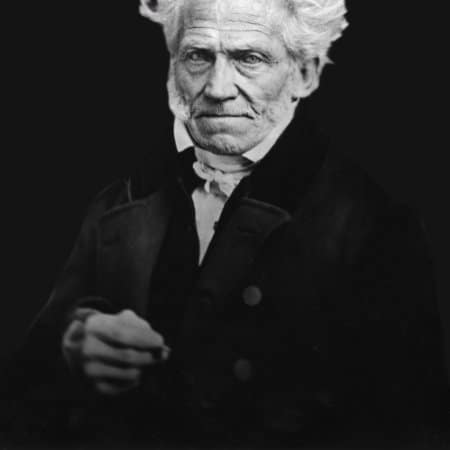
Arthur Schopenhauer lived from February 22, 1788 to September 21, 1860 and was a German philosopher. More precisely, he is attributed to post-Kantian philosophy and German idealism.
Schopenhauer was the first serious Western philosopher to take an interest in Buddhism, and his thought can best be read as a Western reinterpretation, and response to the enlightened pessimism of Buddhist thought.
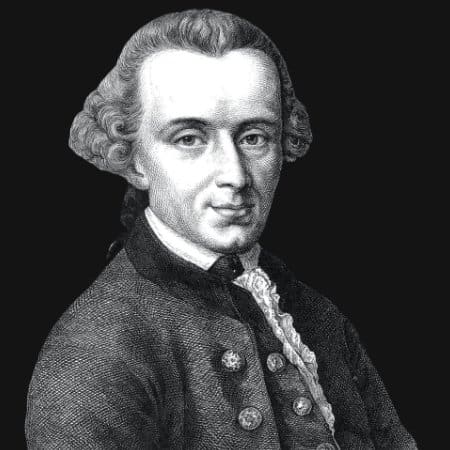
Immanuel Kant (April 22, 1724 - February 12, 1804) was a German philosopher who focused a great deal on metaphysics and epistemology. Kant wrote during a highly interesting period in history that we now know as the Enlightenment. Kant had no conventional religious beliefs, but he was aware of how much religion had helped his parents cope with the difficulties of their lives, and how useful religion could be for social cohesion and community.
Nihilism
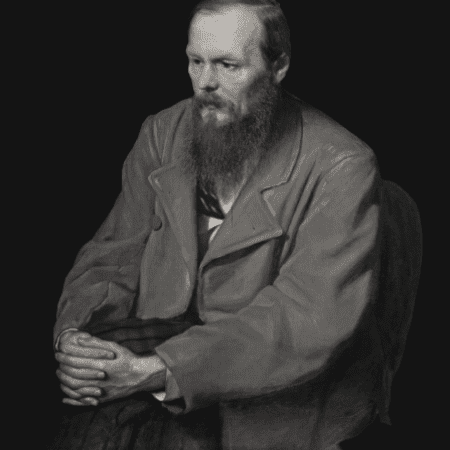
Probably the most famous nihilist of all times is the Russian writer Fyodor Dostoyevski. In his novel Crime and Punishment, the main character Raskolnikov goes through a nihilistic phase in which he believes that life has no meaning and people can do whatever they want, even if it means breaking the law.
That's it so far. Of course, this is not a complete list of all philosophers who ever existed. For one thing, we don't know about all the philosophers who ever lived. Many texts and works have been lost or destroyed in the course of time and there were also quite a few philosophers who never produced their own works. And secondly, we have limited ourselves to what we consider to be the most exciting philosophers.
As you've seen, there are some who aren't too well known, but really should be. And that's what this article was about: giving these great thinkers a platform.

